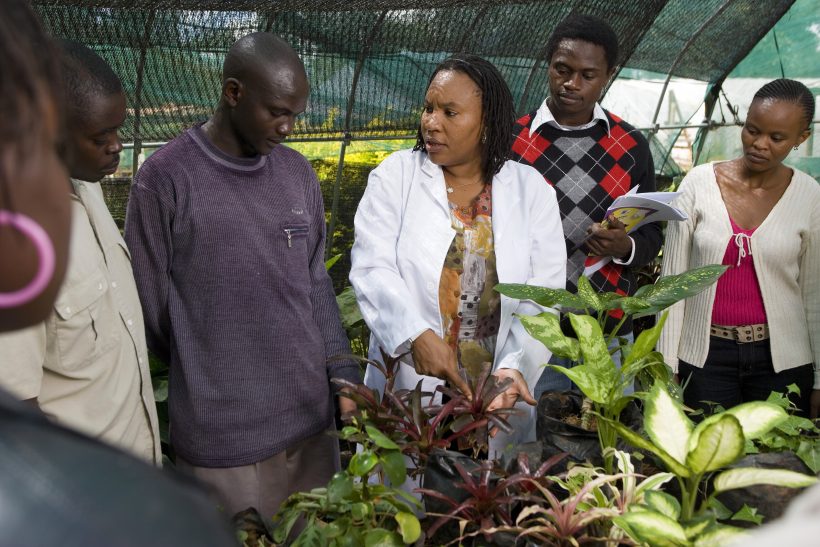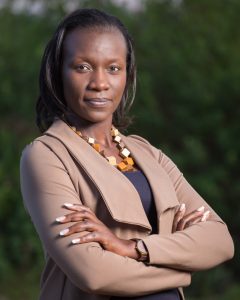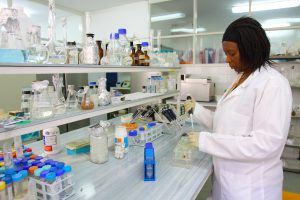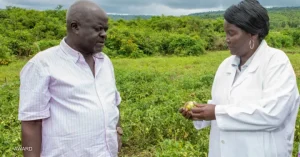
Reblog: First published on the devex website

Dorine Odongo, Communications Manager at African Women in Agricultural Research and Development (AWARD), explores the inextricable link between agricultural research and food systems.
Increased global attention on transforming our food systems has been accompanied by a growing momentum to ensure that they are equitable. However, to achieve transformed, inclusive, and equitable food systems and for agricultural research systems to be efficient and effective, they need to be holistically interrogated.
Agricultural research and food systems are inextricably linked, and for Africa, research remains a critical prerequisite for development and growth. Agricultural science identifies pathways toward sustainable food systems by surfacing the challenges and the appropriate innovations to solve problems.
COVID-19 has brought the fragility of Africa’s food systems into sharp focus, with evidence showing that the pandemic is threatening to push more people into chronic hunger on a continent that is home to 55% of all people facing hunger worldwide and 70% of the lowest-income individuals. Many African countries are net importers of food, with the continent spending about $65 billion on food imports in 2017.
The opportunity to turn this around lies in strengthening Africa’s agricultural production, underpinned by a continuous supply of innovations. It is therefore paramount that we get the research right.
Here’s how we can ensure that our agricultural research is effective and practical:
Firstly, we must ensure that our agricultural research systems are inclusive. This requires an in-depth assessment of the gender composition of the agricultural research system, identifying where the different actors are located, as well as their capacities, contributions, and priorities, and focusing on the ability of end-users to adopt innovations that can transform the continent’s food system.
The gender gap in Africa — and indeed globally — remains a considerable barrier to transforming food systems by excluding a significant portion of the continent’s people from the discourse they so critically need to be involved in.

In a sample of 40 sub-Saharan African countries from 2014, women constituted less than a quarter of agricultural researchers on average. In Malawi and Sierra Leone, they held just 7% of management positions, despite a researcher pool that was 20% female. These low numbers point to the urgent need to strengthen and address the systemic causes of the gender divide in the field.
Women’s representation needs to increase, but the level of involvement for both women and men in agricultural research and development also needs to be investigated and their capacity to take part in decision-making strengthened. Analysis is also needed to see how institutional policies and structures impede or exacerbate the gender gap, how resource allocation widens it, and what can be done to tilt the scale so that excluded actors are brought back into the fold.
Secondly, we must ensure that the agricultural innovations we are developing respond to our food systems’ priorities. To achieve this, we need adequate capacity to ask the right questions in the right contexts and at the right time to get the right answers.
This means that we must invest in building the capacity of our researchers to develop homegrown, contextualized solutions that are tailored to our needs. We need to grow the capacity of African researchers to strengthen gender prioritization in the research, design, implementation, and dissemination of agricultural innovations.
Initiatives such as the African Women in Agricultural Research and Development’s Flagship AWARD Fellowship and One Planet Fellowship, which have reached more than 1,500 emerging and senior scientists from 40 countries in Africa and beyond over the past 12 years, have increased the number of African scientists leading agricultural research initiatives. We are now seeing more African researchers steering the development of projects to address some of the pressing needs of agriculture on the continent.

For example, Malawian researchers are leading work on soil fertility for farmers and developing solutions for the persistent fall armyworm problem, a Kenyan researcher is developing innovations to help smallholders reduce post-harvest loss of their horticultural produce, and a group of agricultural researchers in Senegal have established a multistakeholder platform for cross-learning to help revitalize agriculture in the country.
While this is a good start, it is not enough. Africa needs more such initiatives that invest in strengthening local expertise to develop homegrown solutions for its food systems.
Thirdly, current megatrends — including COVID-19 and climate change — share the common thread of aggravating exclusion and disrupting livelihoods. The ongoing pandemic has shown that alleviating these global challenges is impossible without close, intentional collaboration to develop solutions. One area of focus for AWARD is bringing together an intergenerational network of scientists from across Africa and Europe to provide context about climate change research in Africa.
Catalyzing north-south and south-south research collaboration around building food system resilience during such crises is imperative to avoid future instances of food system disruption and widespread hunger.
Amid the recent United Nations Food Systems Summit, leaders emphasized that science and technology provide a perfect opportunity to transform food systems. Because African food systems are complex yet unique, we can only move the needle by prioritizing agricultural research, supported by developing a pool of proficient African researchers working with their counterparts from different contexts to co-create solutions.
